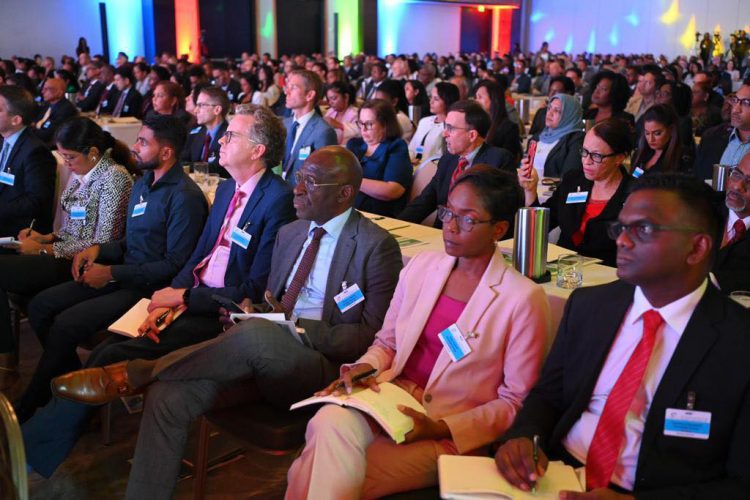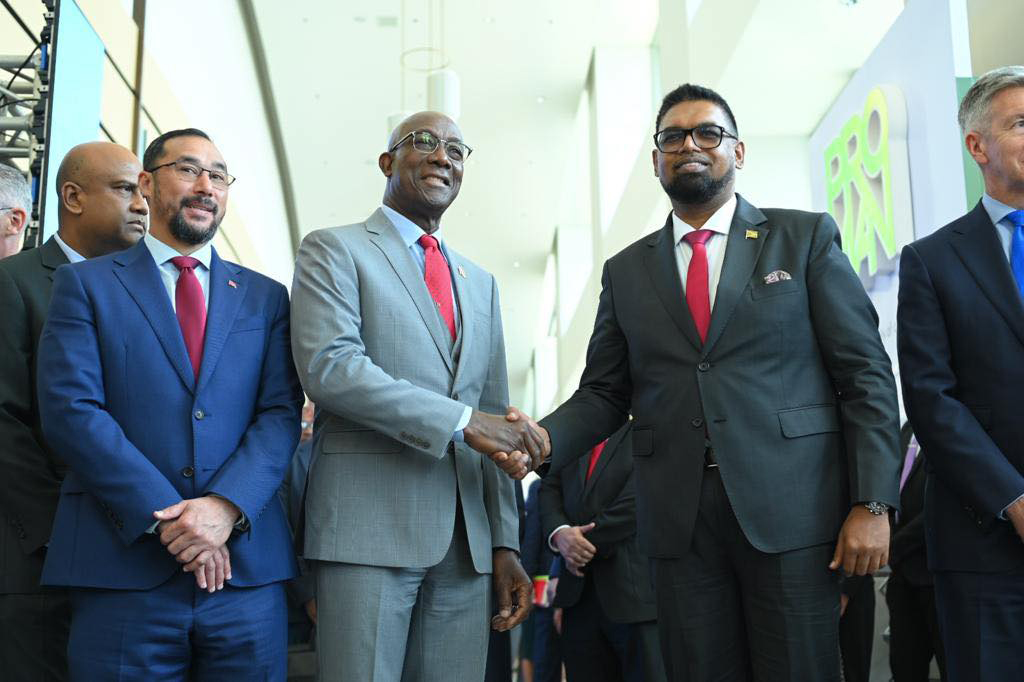Highlighting the challenges Caribbean nations face due to reliance on imported energy and high fuel prices, President Irfaan Ali yesterday said close to US$11 billion is required to achieve fundamental targets for energy security in the region.
Ali made a case for investment in the energy sector as he addressed the opening of the Trinidad and Tobago Energy Conference yesterday morning at the Hyatt Regency Hotel in Port of Spain.
The President stated that the region’s reliance on fossil fuels and natural gas has a long future ahead as he pointed out that despite ambitious green energy goals by Caribbean nations, only 11.5% renewable energy has been achieved.

“It’s not a big scientific analysis that is required. It is based on what is before us. So, the conversation is, how do we take this reality in the context of building a global system and world that moves towards Net Zero? How do we do it? How do we use our revenue to build such a system? How do we reduce our carbon footprint? How do we catalyze the revenue to open up new sectors, greener technology to ensure the viability of our countries and the viability of the people in our countries is also secured whilst we go on the green pathway?” the president questioned as he made the case for investment in the energy sector.
United Nations Secretary General Antonio Guterres has strongly warned against new investments in fossil fuels.
Ali was, however, quick to point out that his argument for energy security through gas exploration must not be taken as a stand against renewable energy infrastructure.
“…Let me be very clear, this is not an argument against renewable energy. We must pursue every opportunity of renewable energy and we have tremendous opportunity,” Ali said.
While delivering the featured remarks, the Guyanese President reinforced his call for countries with natural gas potential to be allowed to conduct exploration. This move is necessary he pointed out as it will result in energy security for not just a single country but a region.
Due to climate change commitments, financing from developed nations and international financial institutions has been tough to secure.
Noting that a natural disaster in the Caribbean region has the potential of wiping out a country’s GDP, Ali said that there has been no single announcement by any of the multilateral agencies of a financing window to support the region’s energy ambitions.
“For a matter of fact, you would be shocked to know that the only known available financing to achieve this target is CDB with a loan portfolio of US$1.4 billion. This is the reality,” he lamented.
He stressed that the high cost of energy in the region has resulted in devastating inflation and has pushed families onto the poverty line and companies into bankruptcy, further crippling economies.
“Many times when you think about food insecurity and hunger our minds automatically are programmed to look at Africa. But if you look at the data now, the Latin American and Caribbean region is becoming the fastest… food insecure region in the world. That is reality. That is the complexity of what you’re facing,” Ali added, as he advanced his argument for the necessary investments in the sector.
He called for the conference to be the starting point of thinking and positioning in the region to achieve energy security.
“It is important for us as a region…that the practical steps will secure us, secure our future and advance our cause,” he concluded.









